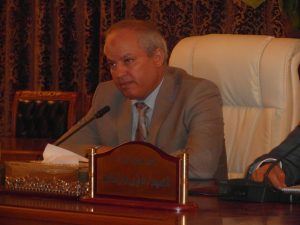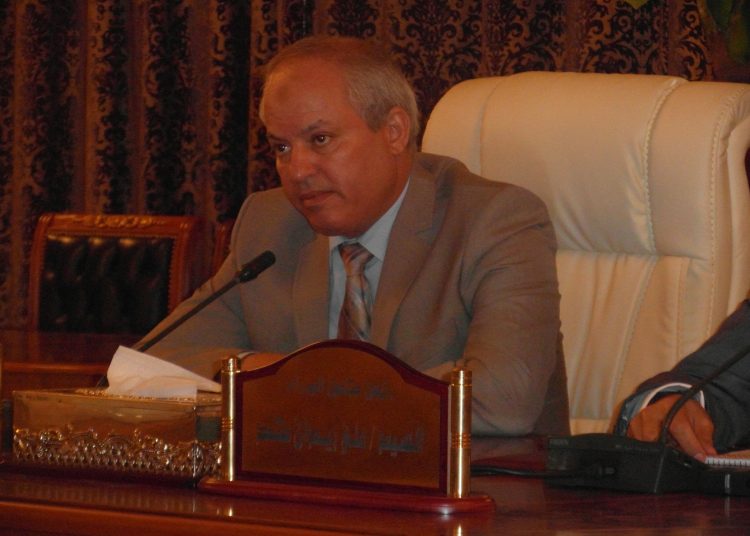
By Sami Zaptia.
Tripoli, 5 August 2013:
Speaking at today’s press conference alongside his Prime Minister, Oil Minister Abdelbari Arusi said that oil production has increased and will increase further after the three day Eid public holiday.
Last week he had reported that production was down by 70 percent.
Arusi said that all production in the fields in the west of Libya were back to normal, producing about 700,000 barrels per day and that he expected this to rise to 800,000 after the three days of Eid.
However, he did confirm that Zueitina, Ras Lanuf and Sidra were still not operating.
The Oil Minister allotted most of the time of his statement to defending the intense criticism and accusations that he has been receiving since it emerged in public that some oil metres used to measure Libya’s hydrocarbon exports, have not been working.
Arusi admitted this fact and stressed that he had inherited this problem as a result of the fighting during the revolution.
However, some in the media had gone further and had accused Arusi of being privy to the corrupt exports of Libya’s oil through under declaring the exact amounts.
Oil Minister Arusi has strenuously denied this, and is going so far as starting legal proceedings against those who in his opinion had defamed and slandered him. He also defended his Prime Minister, the government and the NOC against any impropriety.
Arusi said that whilst it was true that the measuring metres at Sidra were not working, all the others were. He further challenged anyone to come up with any evidence that proved that anyone in the government was acting incorrectly.
Otherwise, he added, “we will seek legal redress for any false accusations and we will display our results to the media”.
Oil Minister Arusi went on to explain that there are five systems for measuring Libya’s oil exports. The five means of measuring oil exports are: the loading ship’s metres, the Libyan Customs Authority, the final importers, the NOC/production company and the inspection department.
Arusi then revealed that members of the media were flown by private jet to the oil terminals very early today to enable them to independently investigate the matter on site.
The Oil Minister stressed that there is no corruption in the Libyan oil sector and emphasized that those that claim there is are intent on sowing divisions.
Arusi revealed that he is to meet the elders and tribe leaders from the Ajdabya area to try to exert some influence on the armed strikers.
He was also hopeful that now that the Petroleum Facilities Guards unit have a new head, it can be run in a professional manner. The PFG had come in for public criticism from the Oil Minister last week for their participation in the strikes.
Oil Minister Arusi had said at last week’s press conference, with an air of sarcasm, that the definition of PFG job is in the title of their unit – they are supposed to guard oil facilities from outside attacks, not be the cause of the stoppage.
Equally, last week Prime Minister Zeidan said that using force to prevent armed strikers at oil installations could lead to the “burning of all of Libya”.
Zeidan had also said that Libya could face fines from oil importers for its failure to deliver contracted oil supplies. [/restrict]








